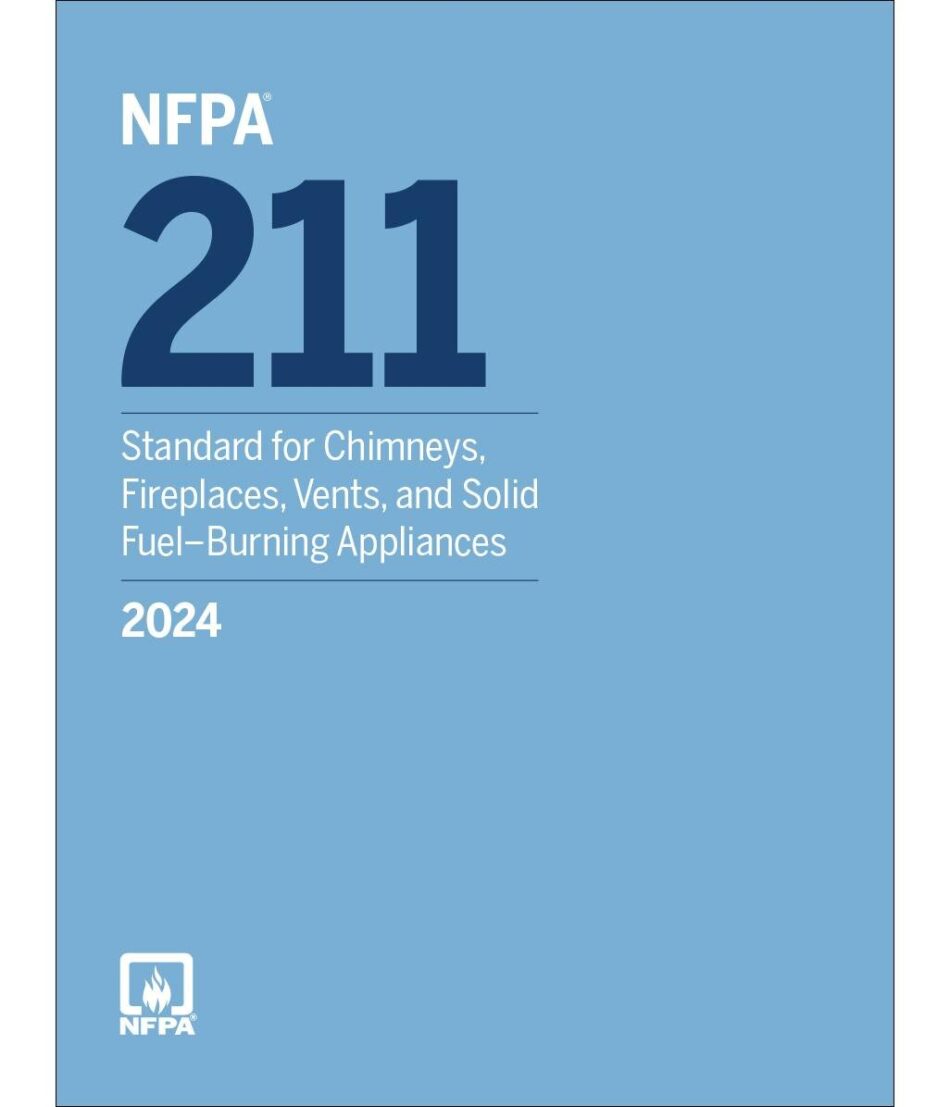NFPA 211 is the National Fire Protection Association’s standard for Chimneys, Fireplaces, Vents, and Solid Fuel-Burning Appliances. The full title is: NFPA 211: Standard for Chimneys, Fireplaces, Vents, and Solid Fuel-Burning Appliances.
This standard provides the requirements for the design, installation, maintenance, and inspection of chimneys, fireplaces, vents, and appliances that burn solid fuel (such as wood, coal, or pellets). It’s intended to ensure that these systems are safe to use and operate efficiently, minimizing the risk of fire and carbon monoxide poisoning.
Key Aspects of NFPA 211:
-
Chimneys and Vents:
-
Requirements for the construction and installation of chimneys and venting systems to safely carry the products of combustion (like smoke and gases) from the appliance to the outdoors.
-
Proper clearances from combustible materials to avoid the risk of fire.
-
Ensuring that vents are correctly sized and installed to maintain proper draft and avoid dangerous backdrafts or inadequate venting.
-
-
Fireplaces and Stoves:
-
Provisions for the safe installation of fireplaces, wood stoves, and other solid fuel-burning appliances.
-
Materials used in these installations must meet certain standards for heat resistance and durability.
-
-
Solid Fuel-Burning Appliances:
-
Outlines the installation and safety measures for wood stoves, pellet stoves, and other solid fuel appliances, including their venting requirements and clearance distances.
-
Manufacturer’s instructions are emphasized as critical in these installations, as specific models may have unique requirements.
-
-
Inspection and Maintenance:
-
The standard stresses the importance of regular inspection and maintenance of chimneys, fireplaces, and appliances. It helps ensure the system remains clear of blockages (such as creosote buildup or debris) and is operating safely.
-
Specific guidelines for cleaning chimneys to prevent fires caused by combustible creosote buildup.
-
-
Safety:
-
Fire prevention is a key part of the standard, ensuring that installations are designed and built to limit fire hazards.
-
Carbon monoxide hazards are also addressed, particularly concerning improper venting and inadequate airflow that could cause dangerous buildup of gases indoors.
-
-
Clearances and Fire-Resistant Materials:
-
Clearances between the appliance (like a stove or fireplace) and combustibles are specified to reduce fire risks.
-
The types of materials that should be used to prevent fires, like fire-resistant brick or heat shields, are outlined.
-
-
Residential and Commercial Applications:
-
NFPA 211 applies to both residential and commercial installations of solid fuel-burning appliances.
-
Guidelines vary slightly for these environments to account for different levels of usage, risk, and appliance types.
-
-
New Construction and Retrofits:
-
The standard also provides guidelines for both new installations and retrofit projects—whether you’re installing a new chimney or fireplace in a building, or retrofitting an existing one to meet current safety codes.
-
Recent Updates
The latest edition of NFPA 211 (2021) continues to refine safety measures related to solid-fuel heating appliances, focusing on modern venting systems, advanced maintenance protocols, and the prevention of creosote buildup. New technologies and materials used in venting and fireplace construction are also considered, especially in the context of increased energy efficiency and environmental concerns.
Why NFPA 211 Matters:
-
Fire Prevention: It helps reduce the risk of chimney fires, which are a leading cause of home fires. Regular maintenance and correct installation are crucial in preventing dangerous conditions like creosote buildup.
-
Health and Safety: The standard helps minimize the risk of carbon monoxide poisoning, which can occur from improperly vented solid fuel-burning appliances.
-
Legal Requirements: In many areas, compliance with NFPA 211 is often mandatory for new installations and renovations involving chimneys, fireplaces, and solid fuel appliances.









